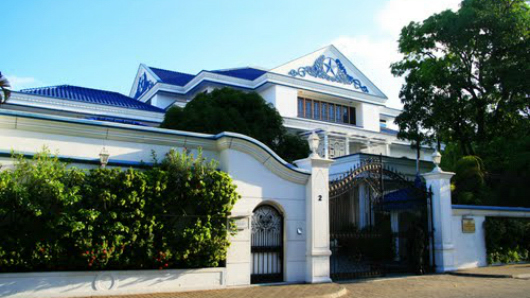The High Court has rejected an appeal filed by the state over the criminal court’s acquittal of a man accused of killing his girlfriend, stuffing her body into a suitcase, and dumping it at a construction site in Malé.
The appellate court’s registrar rejected the appeal because it was filed after a shortened ten-day appeal period.
The Prosecutor General’s Office has blamed the delay on the criminal court’s failure to provide required court documents on time.
The Supreme Court in January shortened the 90-day appeal period to 10 days by striking down a provision in the Judicature Act.
The PG office says it plans to contest the registrar’s decision.
“We filed the appeal within 10 days of receiving court documents from the criminal court. We hope the High Court will accept this case given its sensitive nature,” said public prosecutor Ahmed Hisham Wajeeh.
The criminal court in May ruled that the state had failed to submit conclusive evidence against Mohamed Najah.
Delivering a verdict five years after the murder trial began, chief judge Abdulla Mohamed said Najah had denied charges and that testimony by the prosecution’s witnesses did not indicate Najah had committed any acts to murder Mariyam Sheereen.
The 30-year-old woman’s body was found hidden under a pile of sandbags in a construction site in January 2010. Najah was accused of taking the suitcase to the vacant building in a taxi.
Police showed CCTV footage of Najah dragging the suitcase and said that the DNA samples from the bag matched Sheereen’s. The driver of the taxi that Najah took also testified at the trial.
The couple were living together in an apartment in Maafannu Kurahage. Witnesses had testified to hearing Najah threaten to kill Sheereen and told the court that she was last seen entering the apartment on the night she went missing.
Prosecutors told the court that Najah had entered and left the apartment several times, locking the door each time, and was later seen leaving with a suitcase.
Judge Abdulla, however, said that the taxi driver had only said he had transported Najah with a heavy suitcase and had said that he had smelled a foul scent only after Najah left the cab.
The three doctors who examined Sheereen’s had not been able to determine the cause of death, he noted.
The chief judge has been accused by the opposition of corruption and bribery. Charges have never been proved. Former President Mohamed Nasheed – who was found guilty of terrorism charges over the military’s detention of judge Abdulla in January 2012 – had said the judge was suspected of involvement in a “contract killing.”
Nasheed’s lawyers say they were unable to file an appeal of his 13-year-jail term because the criminal court had failed to provide court documents on time. The government, however, insists the opposition leader can still appeal.
A High Court official previously told Minivan News that judges can accept late appeals if a reasonable justification is given, such as the lower court’s failure to provide detailed reports.
But Nasheed’s lawyers say there is no legal avenue to file an appeal, because the Supreme Court has removed the High Court’s discretionary powers to accept late appeals in the same ruling that had shortened the 90-day appeal period.






